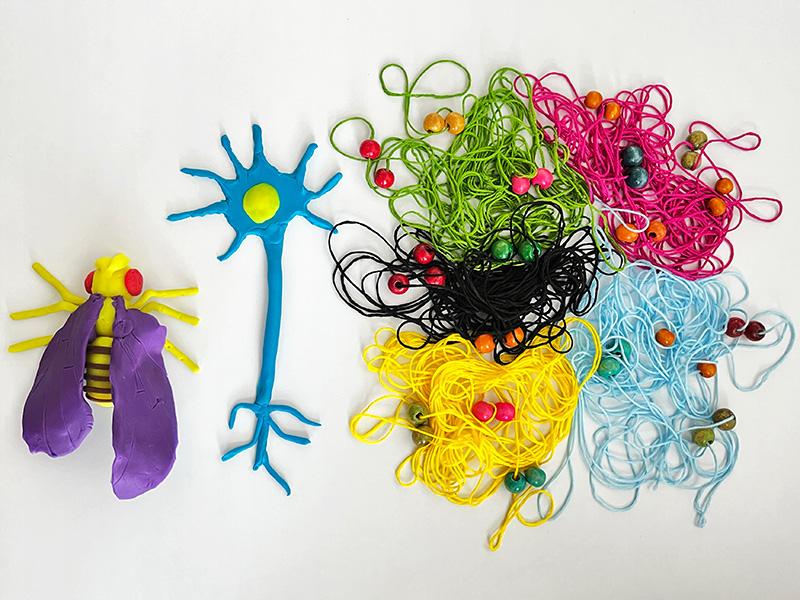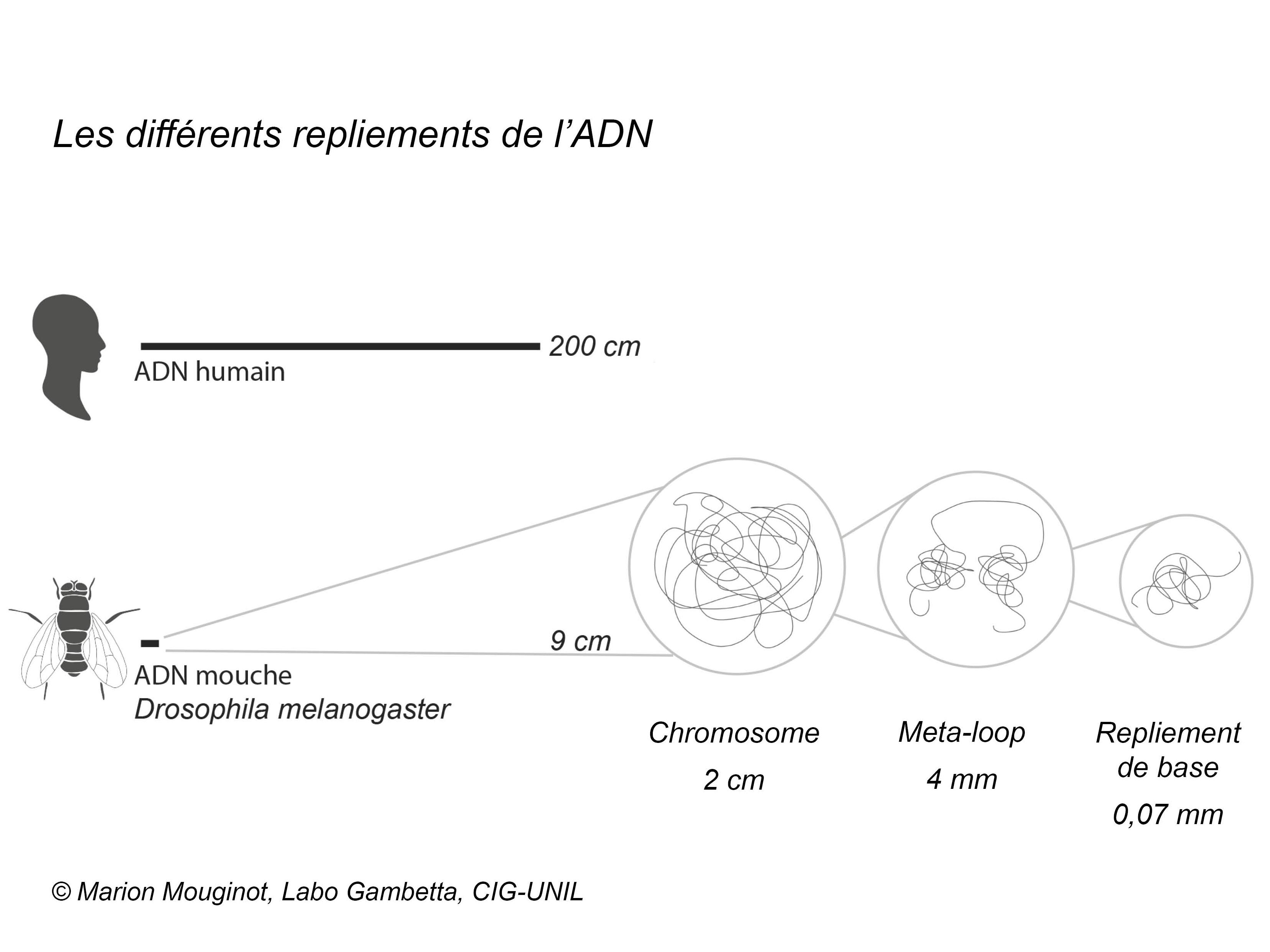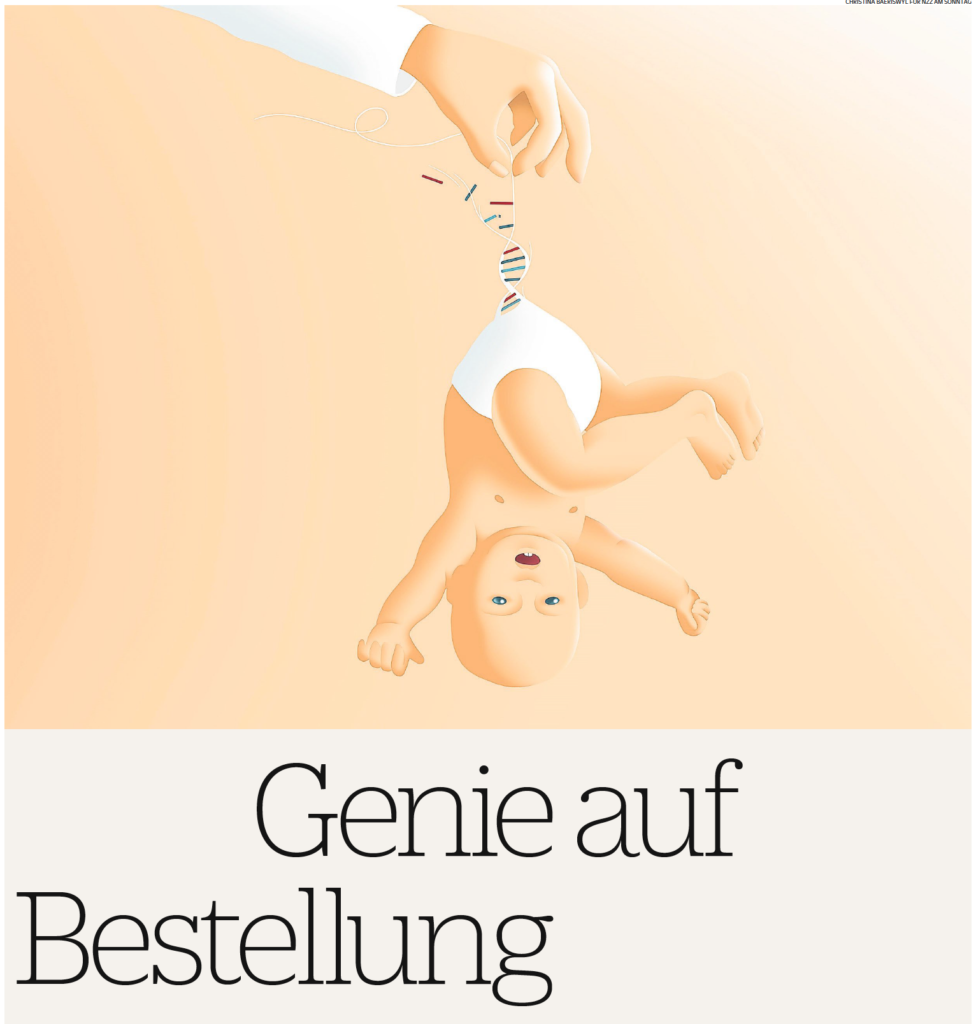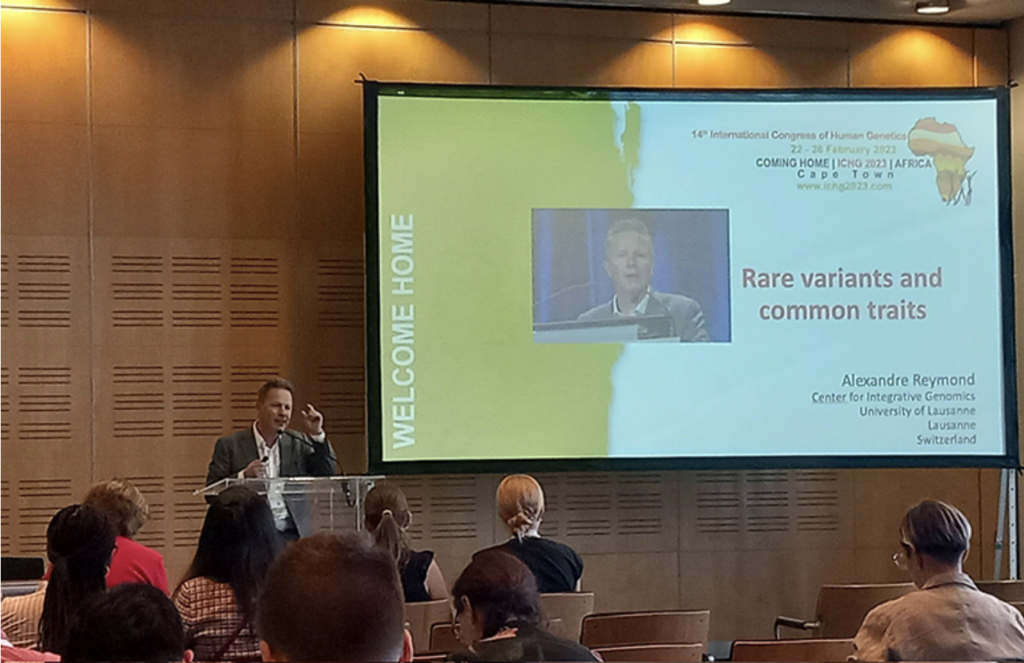
© Labo Gambetta, CIG-UNIL
Studying the neurons of flies, geneticists at UNIL have uncovered novel folds in DNA (shown here as colored threads): meta-loops. Specific regions (represented by wooden beads) on the DNA strand, despite being widely separated, interact with each other.
Link to the Cell publication: https://www.cell.com/cell/fulltext/S0092-8674(23)00741-9
Read the publication’s abstract: http://www.genomyx.ch/cell-auth-group-gambetta/
Article in French: https://news.unil.ch/display/1690547156947
DNA resembles a strand of wool that, during development, twists upon itself to form a chromosome, a ball of yarn. Maria Cristina Gambetta’s team, an associate professor at the Center for Integrative Genomics (CIG) of the Faculty of Biology and Medicine at UNIL, has discovered a new type of fold specifically within neurons. Referred to as a meta-loop, it involves loops that form when two specific regions far apart on the DNA strand – sometimes at the two ends of a chromosome – come into contact.

“Mammals, including mice and humans, possess analogous genetic architectures, but due to the complexity of these organisms, it has never been possible to determine the role played by these structures,” explains Maria Cristina Gambetta, lead author of the study published on August 2nd in Cell, conducted in collaboration with EPFL as well as Princeton and Warsaw Universities.
Using a simpler model – the vinegar fly (Drosophila melanogaster) – the team was able to demonstrate that meta-loops serve a specific function: they influence DNA reading during the development of the fly’s nervous system. By removing these genetic loops, researchers observed connectivity issues between the brain and muscles of the insects, leading to coordination difficulties and convulsions.
Genetic Partners Reunited
Meta-loops are remarkably large structures, with some of them reaching a length equivalent to about an eighth of the entire genome – at least in flies. No known DNA folding mechanism to date can explain their formation, but UNIL scientists have shown that at least a portion of them form when specific proteins bind to the DNA at the anchors (the two distant regions on the DNA strand that come into contact).
“The most remarkable and surprising aspect of the meta-loops we discovered is the specificity with which DNA at the two anchors interacts despite the enormous distances separating them on the genetic strand,” emphasizes the professor. Her research group is currently investigating how these distant attachments communicate to join together during the development of the nervous system.
“Meta-loops offer a completely new paradigm to explore, a novel path to tackle the challenging task of understanding DNA. The ball of the genetic thread is far from completely unraveled and has not finished revealing all its secrets,” concludes the researcher.






